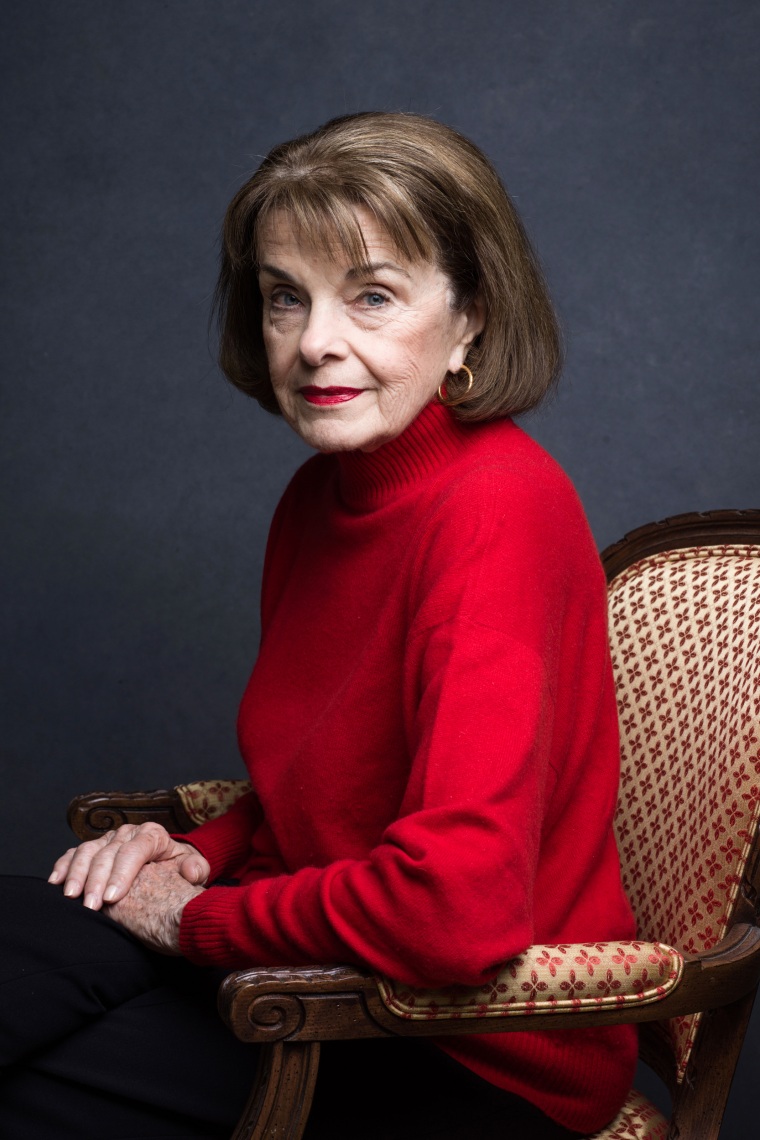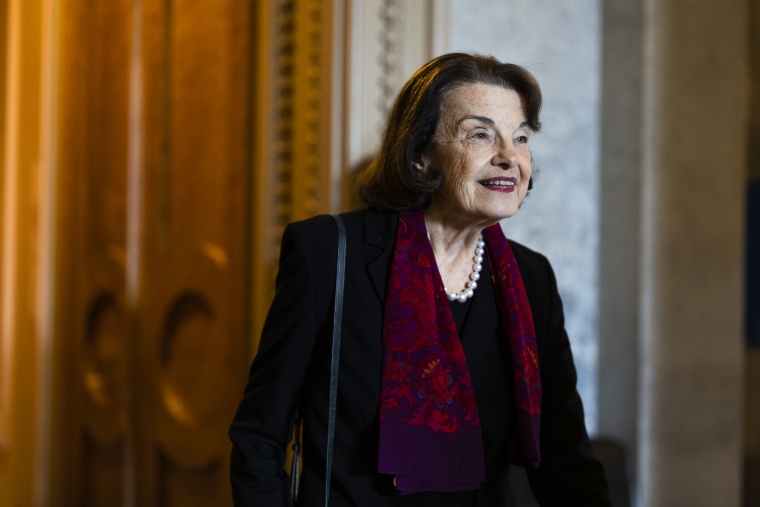WASHINGTON —Sen. Dianne Feinstein, D-Calif., will retire from Congress at the end of 2024 after three decades in the Senate and over 50 years in public office, she announced Tuesday.
"I am announcing today I will not run for reelection in 2024 but intend to accomplish as much for California as I can through the end of next year when my term ends," Feinstein said in a statement.
Feinstein, 89, is the oldest sitting senator and the longest-serving senator from her state, having first been elected to the Senate in 1992. She had been under pressure for years from other Democrats in the state to make room for a younger generation of lawmakers. She had also declined the role in the new Congress of president pro tempore, which has traditionally gone to the senior member of the majority party since the mid-20th century.
Her retirement also opens up her Senate seat from California for the first time in decades. A number of House Democrats have either announced 2024 campaign bids for the seat, including Reps. Katie Porter and Adam Schiff. Rep. Barbara Lee also plans to announce a Senate run by the end of the month, a source familiar with the situation confirmed.
Feinstein has worked under five presidential administrations and alongside the two presidents who also served with her in the Senate: Barack Obama and Joe Biden.
Biden lauded Feinstein in a statement Tuesday as "a passionate defender of civil liberties and a strong voice for national security policies that keep us safe while honoring our values."
"I’ve served with more U.S. Senators than just about anyone," he said. "I can honestly say that Dianne Feinstein is one of the very best. I look forward to continuing to work with her as she serves out her term."
Feinstein said in her statement that she remains focused on passing legislation to address gun violence, promote economic growth and preserve U.S. lands in her remaining time as a senator. Feinstein said she’s confident Democrats can achieve those goals because of their previous work.
“Even with a divided Congress, we can still pass bills that will improve lives,” she said. “Each of us was sent here to solve problems. That’s what I’ve done for the last 30 years, and that’s what I plan to do for the next two years.”
Senate Majority Leader Chuck Schumer, D-N.Y., applauded Feinstein in a statement, saying she “broke innumerable glass ceilings."
“When Dianne came to the Senate, there were only two women senators; today there are 25 serving, all of whom stand in some small part on Dianne’s shoulders,” he said. “Over the coming months, I know Dianne will continue to fiercely advocate for women’s rights in all aspects of life and unwaveringly represent the people of California.”
Former House Speaker Nancy Pelosi, D-Calif., who's now a rank-and-file member in the lower chamber, called Feinstein a "titan in the United States Senate, with a record that stands among the finest in history."
"For the past thirty years, California and our Country has been magnificently served by the leadership of Senator Feinstein: from our national security and personal safety, to the health of our people and our planet, to the strength of our Democracy," Pelosi said in a statement. She added that Feinstein "has not only accomplished a great deal, but is determined to do even more in the last two years of her term."
In April, Feinstein pushed back against a news report citing multiple anonymous colleagues expressing worry that she was mentally unfit to serve. And as recently as December, she was still conveying publicly that she had no plans to retire.
Feinstein's retirement caps a career focused on advocating for more restrictive gun measures, including championing the assault weapons ban President Bill Clinton signed into law in 1994 and pushing for restrictive laws since the ban expired in 2004.

As ranking member on the Senate Judiciary Committee during President Donald Trump's four years in the White House, Feinstein led the Democrats' line of attack against three Supreme Court justice nominees: Neil Gorsuch, Brett Kavanaugh and Amy Coney Barrett.
Feinstein has also long been a fierce defender of advancing gay rights and same-sex marriage. She was one of only 14 senators to vote against the Defense of Marriage Act in 1996, and she celebrated the Supreme Court's decision to legalize gay marriage.
She chaired the Senate Intelligence Committee while Obama was in the White House and led a six-year review of the detention and interrogation program the CIA developed after the Sept. 11, 2001, terrorist attacks, which led to legislation barring the use of such methods of torture.
Feinstein has been known for trying to find common ground with Republicans, sometimes drawing criticism from her party’s more progressive members. She parted from them on a number of issues, including by opposing single-payer, government-run health care and the Green New Deal climate proposal, which she argued was politically and fiscally unfeasible.

She has come under fire at times for some of her stances. She voted, for example, for the resolution authorizing the Iraq War but later said she regretted the decision.
Before she was elected to the Senate in 1992, she was the first female mayor of San Francisco and, before that, a member and the president of the city’s Board of Supervisors. She became mayor after the assassinations of Mayor George Moscone and city Supervisor Harvey Milk, the first openly gay elected official in California. Feinstein was the first person to find Milk's body after he was shot.
